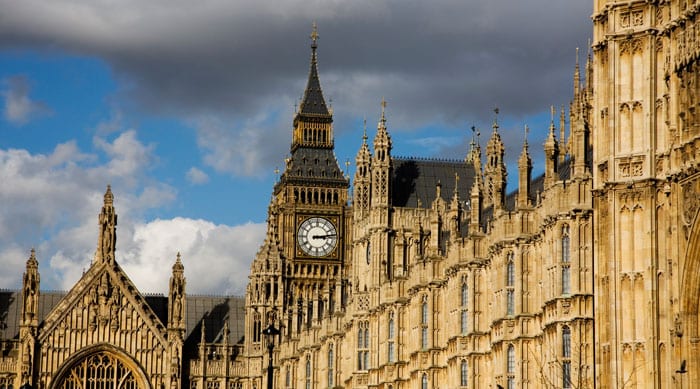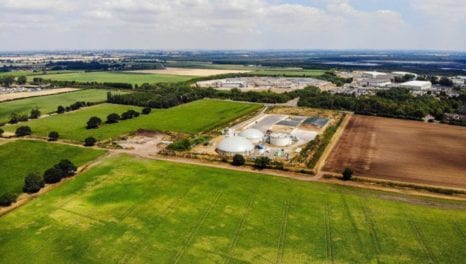New Johnson mandate to shape post-Brexit trade and net-zero
The Conservatives' decisive victory in the General Election sets the country on the path to Brexit and EU trade deal negotiations, including talks on the future trading arrangements for the gas and electricity flowing through interconnectors to Belgium, the Netherlands, France, Ireland and Denmark.
13th December 2019 by Networks

It will also put the Conservatives’ manifesto pledges around carbon emissions into action, after a recent warning from the chief executive of the government’s Committee on Climate Change that policy needs to be enacted quickly in the run up to the COP 26 climate talks.
With a forecast parliamentary majority of 78, it’s expected that the new government under prime minister Boris Johsnon will be able to quickly pass the Brexit legislation in order to enter the “transition” period and trade deal negotiations.
However, it’s not clear what form of trade policy it will pursue.
Within 30 days of exit day, the government must set out a statement on what it wants in the next round of negotiations, ranging from close alignment to EU rules in a “soft” deal to a harder variant.
Negotiations will also discuss future arrangements around gas and electricity interconnectors with Denmark, Ireland and France.
As explained in a recent feature in Network, when the UK becomes a “third country”, these cables and pipes will no longer be treated as EU interconnectors.
This means that both merchant interconnector operators and UK-based transmission system operators, including National Grid, will have their certifications revisited and their status amended.
Opinion is divided on how disruptive this will be, but most agree the UK is likely to come out of trade talks on less favourable terms than it has currently when it takes on “third country” status.
Meanwhile, the Conservatives’ commitment to backing up their net-zero legislation with policy and investment will come under scrutiny.
On 11 December, Chris Stark, who heads the Committee on Climate Change, told the annual conference of the Anaerobic Digestion and Bioresources Association that “very little has happened beyond talking” on the issue since parliament passed the net-zero law in June “
As reported in Utility Week, he said: “The next six months in this country are more important than any six months since we started focusing on climate change. I hope the next administration will have a set of policies that make sense: if they don’t, you will hear from us more and more.
Stark said that the UK government will also be under pressure to deliver a “credible” plan for cutting emissions by the end of next year when Glasgow hosts the UN COP 26 climate change talks.
“The UK needs to do more than it has done already. It matters for the UK that it (COP 26) is a success because of the need to host a summit well and show that Britain has not disappeared into a national corner and that it’s still a global citizen.”
The Conservative’s commitment to addressing climate change had been called into question by Johnson’s refusal to take part in a televised debate on the subject.
The size of the victory also makes it less likely that a cross-party climate change net-zero pact will be put in place, as sought by leading voices in the sector.
But Stark said it was good news that the Treasury had published the terms of reference for its review of net zero before the general election campaign when government announcements are suspended.
The document was published here on 2 November.
The sector will also be hoping that the new Johnson government will move quickly to publish a new energy White Paper, first announced in late 2018.
The decisive victory also means that the Labour party’s commitment to renationalisation in the utiltites sector will disappear from the policitcal debate.
Comments
Login on register to comment
Related content

Gas
Cadent backs launch of major bio-CNG HGV refuelling station
Gas network’s £250,000 infrastructure investment ensures supplies to existing connected customers have not been impacted

Gas
Editor’s blog: The biggest tests of resilience are yet to come
Network content director Jane Gray reflects on the industry's coronavirus response to date and the challenges still to come.

Gas
From the front line: Chris Garside and Andy Simcoe, Northern Gas Networks
Key workers across the power and gas networks are playing a critical role in the national response to Coronavirus. Network has committed to profiling their stories.
Related supplier content

Gas
Zero Harm supplement
'31.2 million working days were lost to work-related illness and workplace injury between 2016 and 2017' *(Health and Safety Executive)

Gas
Network explains heat networks
Commonplace in Europe and gaining in popularity here

Downloads
Network media information and marketing options
Network is the first and only magazine dedicated to engineering leaders in the UK's gas